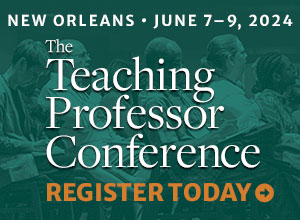Provide ‘Feedforward’ with Exemplars
There is growing interest in the pedagogical literature in something called feedforward. It is, as the name implies, the opposite of feedback, which provides input after the fact. Feedforward offers input focused on the future. It lets students know what they should be doing or could be doing differently next time. If it’s a similar assignment, the “do differently” is specific advice on changes that will improve the next assignment. If it’s a different assignment, the “do differently” identifies what’s not the same about the next assignment and what needs to be done in a different way.



